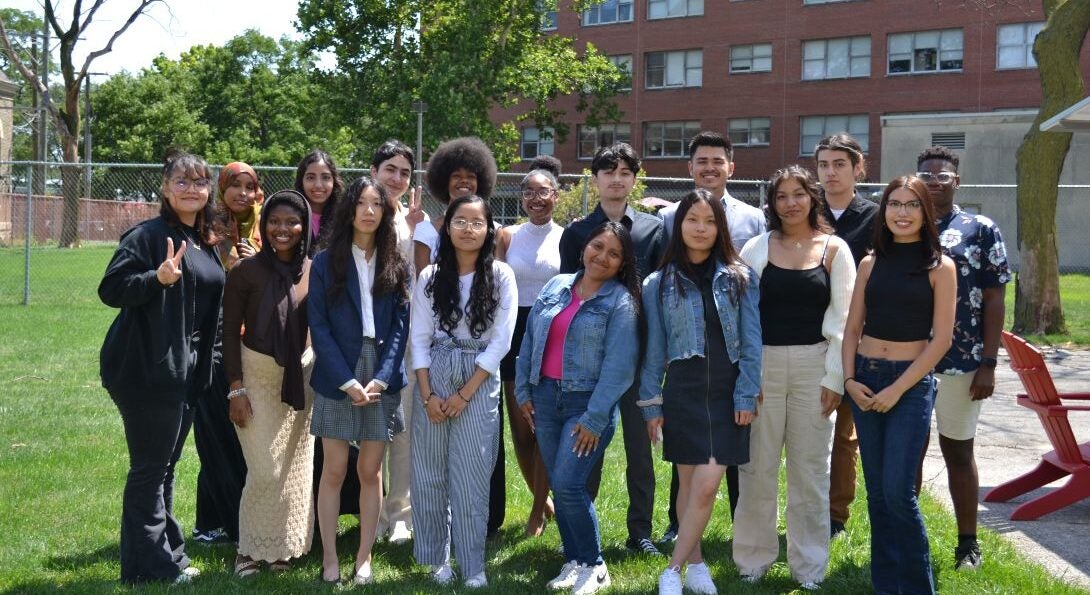Public Health Infrastructure from the Ground Up: The PHAR Summer Program

Story Content
The Pre-Health Academic Readiness (PHAR) Undergraduate Summer Program at the UIC School of Public Health is helping shape the future of public health by preparing students to understand and engage with the health system’s foundational structures.
Launched in 2024, this four-week intensive program, funded by a five-year Health Resources and Services Administration (HRSA) grant, introduces economically disadvantaged students to the broad scope of health professions and the community that can be built at UIC.
“PHAR not only allows students to prepare for classes, but it gets them involved in campus opportunities, exposes them to Chicago communities, and builds a network in the health sciences from the start,” said Jamie Chriqui, PhD, Senior Associate Dean of the School of Public Health and co-principal investigator on the HRSA grant.
PHAR emphasizes the importance of public health infrastructure through a curriculum that blends academic preparation with hands-on learning. Students explore Chicago’s neighborhoods on field trips, learning firsthand about the social determinants of health and how urban health systems respond to these challenges. By volunteering at UI Health and visiting organizations like Mile Square Health PHAR summer 2024 students at the program graduation. Center, participants gain exposure to real-world health services that are essential to maintaining a city’s public health framework.
The PHAR program supported 20 students in its first year and has plans to welcome 25 students to the program in summer 2025.
More than just a college readiness program, PHAR is an immersive experience in understanding how public health systems operate and affect communities. Students learn about leadership, mental health training, and the importance of creating accessible health opportunities for all—especially medically underserved populations. The program encourages participants to think beyond traditional healthcare roles, sparking interest in fields like public health, environmental health, and health policy.
“Many students come into college undecided, and PHAR helps orient them to careers or fields they may not have considered, like public health,” said Chriqui.
Through the PHAR program, SPH is not just preparing students for academic success; it’s fostering a new generation of health professionals committed to strengthening public health infrastructure in diverse, urban settings.